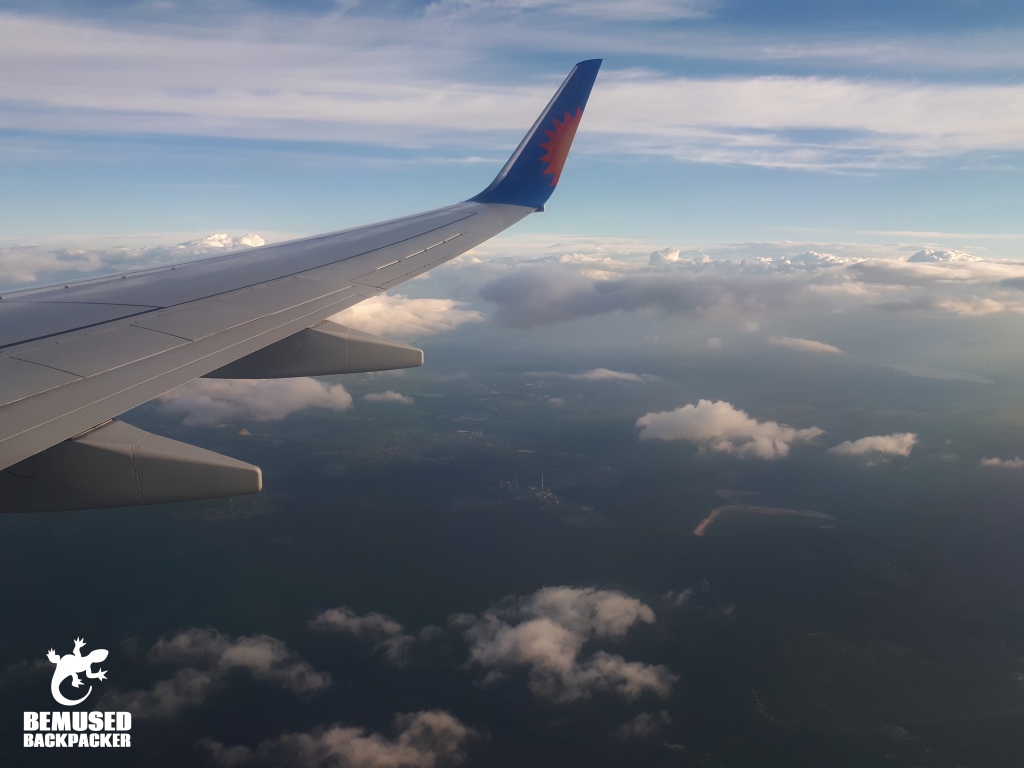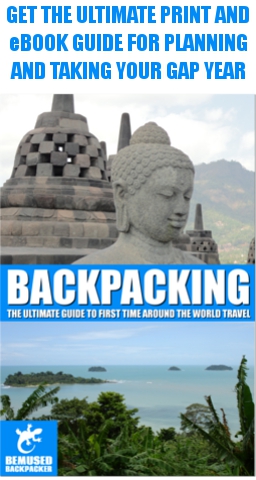
Disaster tourism is essentially the act of travelling to a disaster area out of a matter of curiosity, or using a disaster to create profit in the form of organised tours and treks. In some circumstances it can have a positive impact but there is an even more stygian side to this aspect of dark tourism that comes with every natural disaster and ventures beyond mere voyeurism. It is this side of disaster tourism which can actually do more harm than good. The key is knowing the difference.
People are inquisitive by nature, and the voyeuristic aspect of rubbernecking on something terrible has always been a natural human trait, for better or worse.
Whether you agree with it or not, people get fascinated by terrible things, and disasters are no exception.
The ethics of visiting sites of natural disasters, conflicts or even terrorism are often murky at best but it isn’t all bad, there are some positives to this form of dark tourism. Travelling to the site of a natural disaster or conflict for example can often provide an empathetic link to the local people or group involved in the tragedy.
In some cases tourism, when done right, can provide economic relief to hard hit communities. It can provide a way out of a hard situation.
Disaster tourism can often provide a cultural and intellectual understanding of why such things happen, acting as a conduit to connect the academic to reality or in the case of recent tragedies sometimes even allowing people to heal.
Many tourists flocked to the site of the World Trade Centre after 9/11 to do just that, now of course there is even a memorial built there. It can even be argued that the ethical implications diminish with age, no one would bat an eyelid over visiting Pompeii for example and it is in fact a fascinating learning experience, many generations now visit sites of WWII battlefields or landmarks in an attempt to understand a recent past, whilst older generations may still struggle with that.
There is certainly truth to the fact that tourism has no place in an area where suffering is still new and raw, but this is because there is another form of disaster tourism too. Voluntourism.
It is when the tourism aspect goes beyond simple curiosity of a site or event long after the act has occured that the ethical lines get far more blurred. When natural disasters strike such as the boxing day Tsunami in Thailand in 2004, Hurricane Katrina in 2005, the earthquake in Haiti in 2010 or the relatively recent earthquake in Nepal, the inevitable well wishing and aid starts to flow in. Unfortunately, so do the floods of disaster tourists and misguided do gooders, hell bent not only on heading to a disaster zone to see it first hand, but to ‘help’. This is the flip side to disaster tourism, disaster voluntourism.
It is this help that makes disaster tourism dangerous, with the well intentioned voluntourists potentially being as harmful as the secondary effects of the disaster themselves.
The earthquake in Nepal at the time of writing has caused a death toll of more than 5000, with a further 6,500 in various states of medical need and distress, and as the days begin to unfold that number could easily double. In any natural disaster the initial disaster itself is only the first wave of destruction, in the days and weeks that follow, secondary effects from the destruction of infrastructure, lack of supplies, exposure and disease, all pile the pressure and misery on an already dire situation.
What makes this worse is the outpouring of guilt from a thousand bleeding heart travellers and tourists, many proclaiming they want to go there to help, some just saying they want to go there. No offence, but you probably aren’t going to be needed.
International aid is not perfect. I will never pretend to argue otherwise. It is often slow to respond and reactionary at best, with initial response times and logistics often being the worst perpetrators, but despite those flaws it is essentially robust and providing an essential service when otherwise there would be nothing.
International aid organisations and various military forces – all with skilled and trained personnel – work together to establish a chain of supply and organize teams of specialists to be where they are needed most. This small army of personnel is often made up of people who are specifically trained and qualified to provide essential services in any given crisis. Military logistical experts, engineers, doctors, medics, nurses, the list is varied but invariably essential.
So what makes voluntourists and untrained travellers think they will be of any benefit in that situation?
Sure, their motives are honourable. I understand the urge to help, I really do. I have worked as a nurse and a medic in disaster relief areas and conflict zones. I understand the empathy toward human suffering, I get that people feel the need to do something, to act. In one respect that humanitarian urge is to be applauded, even nurtured, but alongside that it has to be channeled correctly too.
Compared to the qualified experts, not only trained in their specific discipline of medicine, nursing, engineering or whatever it may be, but also trained in the stresses, strains and unique problems of working within a disaster or conflict zones, what good are a disparate and unsolicited band of tourists, travellers and bleeding hearts all clambering to ‘help’? What good does it do to flood an area with even more people, putting a greater strain on stretched resources and often hampering efforts to help?
Tourism is undoubtedly key to helping any country rebuild and heal after a serious natural disaster, but that is for the near future. For the moment just stay back, let the professionals do their jobs, stay out of their way and plan a trip there once the dust has settled. Literally. In the immediate aftermath of any disaster you will just be in the way and be nothing more than another rubbernecking tourist.
There are ways you can help however. If you feel the need to do good, then that is fantastic but I urge you to do it in the right way.
Unless you are a qualified professional with relevant skills, stay away.
As has been said already, you will just use up vital resources and get in the way.
If you are a qualified professional, then team up with an agency on the ground.
If you are a qualified professional and really want to help then I urge you to go and volunteer with a recognised and reputable aid agency that is already on the ground. They will be glad of your help and will be able to place you where you are needed most and organise the effort properly instead of everyone just turning up and making the relief effort a holy mess.
Donate your money.
All relief efforts need funding, and this relies on charity and government handouts. What they don’t need is a load of second hand stuff or droves of tourists turning up. So instead of getting on the first plane to a disaster zone like Nepal in an attempt to boost your ego or assuage your bleeding heart, why not give the cost of the plane ticket instead? I thought that would make a lot of you balk.
Donate your money to the RIGHT agency.
It is important first of all that if you do donate money to any disaster relief fund then it is to a reputable, established relief charity and furthermore to a charity that you agree with. Not every charity is equal and a little bit of research goes a long way.
Tourism is not all bad though. Tourism CAN have a positive impact. Tourism can play a huge part in helping a country heal and rebuild after a natural disaster, but only if it is done right. Timing is everything. Don’t be one of those tourists turning up to gawk at a disaster zone, don’t be a bleeding heart voluntourist who turns up straight away and makes things worse, let the professionals do as much as they can and then travel there. Pump some tourism cash into the local economy when they are trying to rebuild, not when they are trying to survive.
Make tourism count for something good, don’t make it part of the problem.
Did you enjoy this article? What do you think about disaster tourism, does it have a place? I would love to hear your thoughts in the comments section below or on my Facebook or Twitter pages and please feel free to share it with any or all of the social media buttons. If you want to get more great backpacking tips, advice and inspiration, please subscribe to updates via email in the box to your right.





It seems like common-sense to me. It saddens me to realise that some people go to places where food, water and sanitation are compromised and are happy to live in comfort while worsening the plight of the locals.
I know exactly what you mean. Thanks for the comment.
It requires refinement. Pain has the same effect on all living beings anywhere, any skin, any country. When under pain money doesn’t matter to any of these. Such occasions of pain would better be understood as a learning process. The person, the country gets more matured in the coming days. The traveller could also..
You are right, pain knows no boundaries, but neither does disaster tourism, which is where the problem lies.
Excellent points and these hard perspectives need to be discussed. Dark tourism is a new term to me and some if it is human nature. In the U.S. many of us have experienced traffic slowing down as drivers gawk at an accident or neighbors running over to find out why the police are next door. The other side is to definitely ‘follow the disaster’ well after the immediate chaos to help in the re-building efforts with well-placed tourist money and making sure it gets into local hands. Knowing the difference, traveling with care and compassion instead of impulse, is an important distinction.
Exactly Elaine, I agree it is an important distinction, which is why I argue that ‘following the disasters’ can never be a good thing. Let the aid agencies and professionals do their essential work, then AFTER that is done travellers can head there and provide much needed tourism income when the country is over the worst and rebuilding. I’ve seen too many tourists and wannabe heroes turn up in the immediate aftermath thinking they can help but often making things worse. Thanks for commenting. 🙂
Great article. It really is a fascinating and concerning thing that humans do. Some part of me thinks that people flock there to grab pictures of themselves with the disaster. It’s the same type of person who reads a news story of a murder in their city and then posts, “murder happened near where I used to work… used to go all the time… to think, it could have been me!” spinning the attention of the tragedy onto themselves.
100% agree in staying away!
Thanks Chantae, I think you are right there is definitely an element of that in it for some people.
As a professional development worker I often advocate against unethical voluntourism in general, but especially disaster tourism.
Haiti was the perfect example of ordinary people trying to ‘do good’ when they actually created more harm. I know an aid worker who told me that there was an American church group who wanted to build latrines in Port Au Prince. Good idea in general, however, what they failed to realize is that they build the latrines so close to a water source, that all the people who used the latrine contaminated the drinking water. So, all people who drank the water got sick. By that time the tourists of course had long gone, probably feeling very smug about themselves and still wearing their T-Shirts saying ‘Haiti 2010-I made it’. Yes, they actually wore these T-Shirts.
Delivering aid is not as straight forward as it sounds, and a lot of thinking, research, needs assessments, and technical knowledge is required to respond to a disaster. Thanks for pointing this out with this article.
Tammy I am so with you! Those damn tourists annoy me too, but hey at least they get to go home to their soft beds after a few days and post nice selfies of themselves across their social media helping out the poor people in the disaster zone. All they are missing is a red cape and underpants to go with those damn T shirts!
I respect the motivation, but that needs to be channeled into something useful and practical. As you say, delivering aid is not as easy as people assume. Thank you so much for commenting.
Thanks for your article, Michael! It was enlightening. I never knew this darker side of tourism, and the existence of disaster tourism is off-putting. It was only recently where I realise that unqualified volunteering at disaster sites is not as heroic as it seems; it’s more of a hindrance. And it takes qualified professionals to give the right kind of help, right kind of food, and right kind of care. Now, I really think it’s much more practical for the general population to channel their altruism in the form of donations to the right organisations, and maybe along with a silent wish or prayer.
You aren’t wrong Jane. Thanks for commenting. 🙂
What a great read!! You are absolutely correct and I think the only possible exception would be if you are already there when the disaster happened, then travellers might be of some use but quite possibly they can still get on the way.
Furthermore, it is not a good idea to travel to a disaster area, especially to one that has warm weather, as diseases and illnesses will soon start to go around so it is also a health risk for anyone going there -and should be a reason for travellers already there to keep moving elsewhere.
I truly hope that when the trekking season in Nepal starts again in September that people still have this urgent need to go there.
Oh absolutely, travellers who are in the immediate vicinity of the disaster can’t help being there and there is an ethical imperative to help people IF you can without putting yourself at risk. But other than that the best advice to any traveller is to clear out and get to an embassy, a consulate or a safe haven as soon as possible. Thanks for the comment. 🙂
Very interesting. I’ve never thought about tourism from this point of view before. You’ve definitely made me think.
I’m so glad to hear that Lauren. 🙂